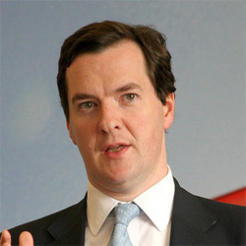The coalition government’s move to raise VAT to 20 per cent from 4 January next year will lost the charity sector in the region of £143m, Charity Tax Group has estimated.
The increase was announced in today’s emergency Budget by Conservative Chancellor George Osborne.
“The years of debt and spending make this unavoidable,” Osborne said. “This single tax measure will generate £13bn a year in extra revenues by 2014/15.”
However, the detailed Budget report holds some hope for the sector that the government may be prepared to lift the VAT barrier that makes it uneconomical for charities to share back-office services.
Hope for the sector
The report said: “Recognising the efficiencies that can be achieved by organisations such as charities sharing services and the potential VAT barrier that exists, the government has started discussions with charities and other affected sectors to consider options for implementing the EU cost-sharing exemption. It will continue those discussions and launch a formal consultation in the autumn.”
Research carried out by Charity Tax Group (CTG) recently suggests that the cost to the sector of not being able to recover VAT is up to £1.3bn – more than twice as much as previously thought. Raising VAT to 20 per cent will add another £143m, or 14 per cent, to that bill, CTG said.
CTG arrived at the new figures by extrapolating data from the latest accounts of 87 mainly large UK charities and applying these to the whole sector. The lowest possible cost of non-business and exempt business irrecoverable VAT was £1.04bn; the highest, £1.3bn.
Small charities will suffer the most
Smaller charities, with incomes of less than £30m, suffer worst from not being able to recover VAT, with the tax accounting for 3.6 per cent of income available for charitable expenditure. For those charities with turnover more than £30m the proportion is 2.3 per cent. Thus the increase to 20 per cent will hit smaller charities hardest, as VAT rises to 4.4 per cent of their available spending.
The Chancellor’s announcement that VAT would go up attracted the rowdiest response of his entire hour-long address in the Commons.
Essential items such as food, children’s clothing, newspapers and printed books will remain zero-rated, sparing charities who publish supporter magazines any additional cost.
The government pledged to continue to explore reform of gift aid and consult on new substantial donor legislation.
Charity policies sparse
Simon Weil, a partner at Bircham Dyson Bell, said the most notable thing about the Budget was the almost complete absence of charity-specific policies.
The pledge to consult on removing VAT from shared services was “better than nothing”, he said, but the worst thing was that there was no mention at all about repealing the “momentous changes” contained in the earlier Finance Act 2010 related to the introduction of a new ‘fit and proper person’ test.
“That continues to be a real hot potato,” Weil said.
The Chancellor said the measures announced today would see public sector net borrowing fall from £149bn this year to £20bn by 2015/16. And as a share of the economy, borrowing will fall from 10.1 per cent of GDP this year to 1.1 per cent in 2015/16.
This would be achieved, he said, through 77 per cent spending reductions and 23 per cent higher taxes.
A levy will be introduced on banks, based on their balance sheets, intended to encourage them to move to less risky funding profiles.
Image copyright: MHolland, 2009









